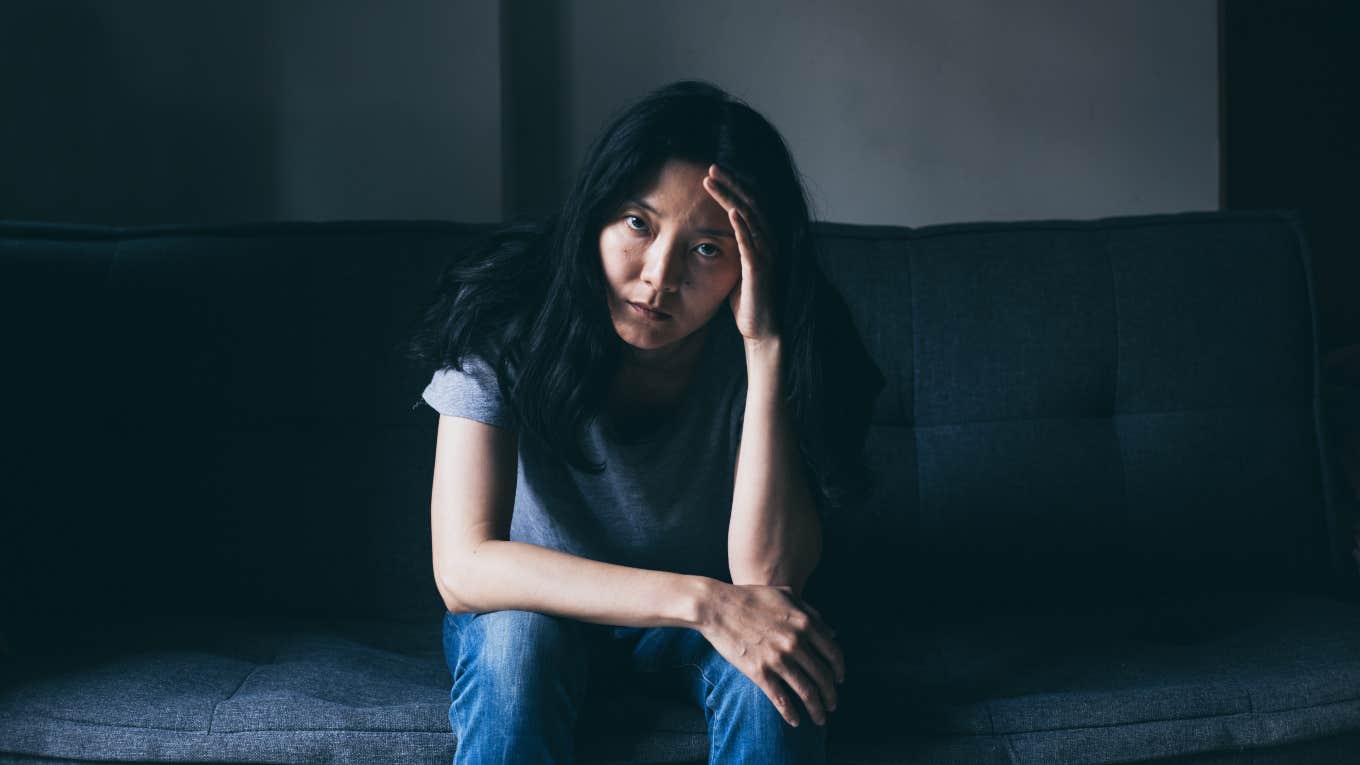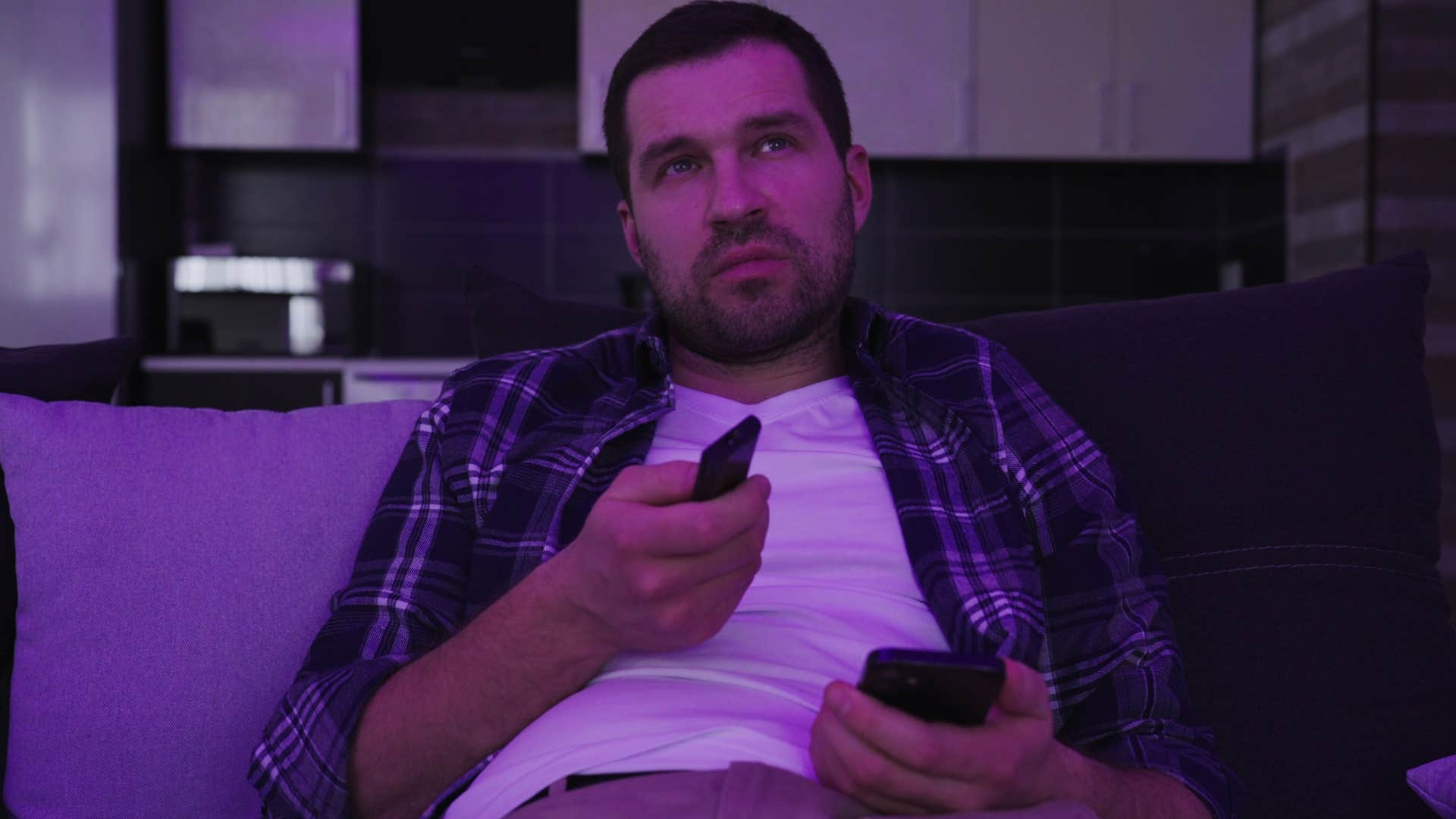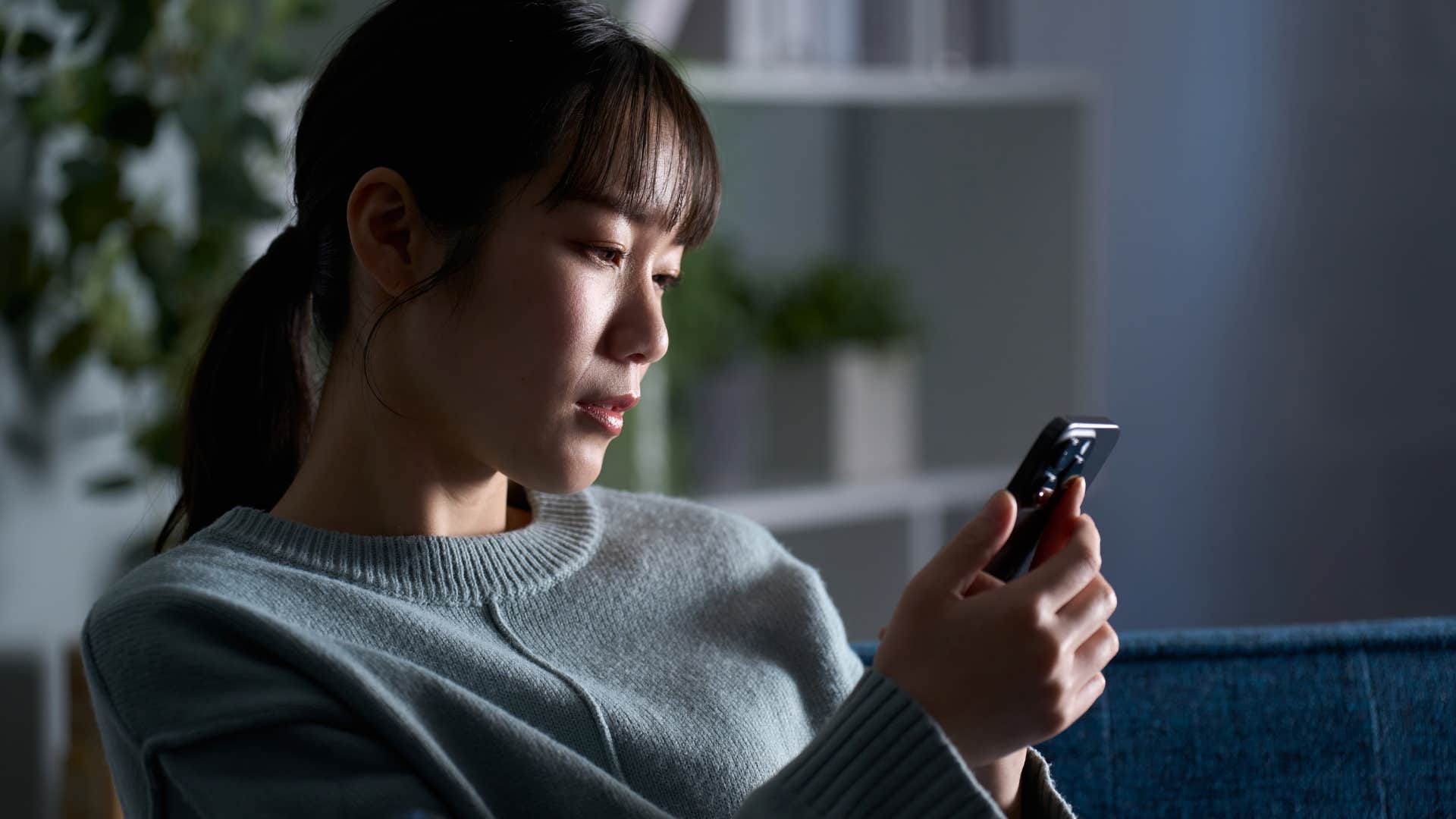If You Notice These 11 Things In Someone's Living Room, They're Struggling Emotionally
If their living room looks like this, something deeper is going on behind the scenes.
 panitanphoto | Shutterstock
panitanphoto | Shutterstock Our homes aren’t just a reflection of our personal self-concept or personality — they also reveal our mental health and emotional well-being to guests and visitors. For example, if someone’s home is cluttered, with no space for guests to sit, and half-finished projects lying around, it likely indicates that you’re struggling — whether it’s with free time, energy, motivation, or depression.
So, if you notice these things in someone’s living room, it indicates they’re struggling emotionally. Even if they justify the state of their home or avoid asking for help, they probably need support and a light at the end of the tunnel.
If you notice these 11 things in someone's living room, they're struggling emotionally:
1. Tons of empty coffee cups
 Maples Images | Shutterstock.com
Maples Images | Shutterstock.com
While there are certainly benefits to safely consuming caffeine, from mood to productivity, overdrinking coffee every single day or relying on energy drinks for a boost of energy could quickly harm your health. According to a study from the American Medical Association, too much caffeine can often plague people with chronic headaches — a subtle, yet completely disorienting experience navigating everyday life.
So, if you notice a million empty coffee cups and empty energy drink cans scattered around in someone’s living room, they’re likely struggling emotionally. They’re obviously tired, but also not addressing the root cause of the issue, whether it’s burnout or emotional drain.
2. A furniture layout that makes no sense
 Rawpixel.com | Shutterstock
Rawpixel.com | Shutterstock
If it’s clear that someone’s living room is set up for immediate convenience, rather than social connection or good feng shui, that could be one of the signs that someone’s struggling emotionally. Like a study from the World Psychiatry journal suggests, social connection is fundamental to our physical and mental health, so if it’s obvious someone’s furniture isn’t intuitive for hosting or having people over, it could be a red flag.
Especially if someone’s overworking themselves in a job or spending most of their time outside the house doing everything but connecting with their people, having a home that lacks warmth, comfort, and connection only adds strain to an already-struggling person’s routine.
3. Clutter everywhere
 PeopleImages | Shutterstock.com
PeopleImages | Shutterstock.com
For people who feel regularly emotionally dysregulated, throwing things away and clearing out clutter can be much more difficult, at least according to a 2018 study. Not only is it often a side effect of struggling executive functioning from depressive symptoms, but a lack of energy, time, or motivation to clean when there’s already so much chaos happening in their minds.
That’s why clutter at home is often a red flag pointing to someone struggling with mental health. Not only are they experiencing a constant addition of stress and strain from the visual clutter, but they’re also struggling with basic tasks in the face of their own emotional chaos.
4. Workout gear they never use
 Jestercine | Shutterstock.com
Jestercine | Shutterstock.com
If they went through the trouble of buying workout sets, a yoga mat, or a workout machine, but never actually used it, that could be a sign that someone’s struggling emotionally. They need something to cope with their internal struggles so badly that they actually bought it or brought it into their living room, but now don’t have the energy or motivation to use it.
Of course, regular workouts and exercise do promote better emotional resilience, at least according to a study from the Frontiers in Physiology journal, but you do have to actually make time for and follow a routine to get the internal benefits.
5. A lingering smell
 Andrey_Popov | Shutterstock.com
Andrey_Popov | Shutterstock.com
If someone hasn’t done their laundry in a while or taken out the trash, chances are the first thing you’ll notice after walking into their home is the smell. Even if it’s not intense, it’s clear that the clutter and neglected chores are tainting the air.
Even if it’s subtle, someone who’s struggling emotionally likely spends all their time at home coping. Whether it’s avoiding internal healing with sleep, mindless entertainment, or other distractions, they’re not leaning into the “reset” energy of chores, but retreating to immediate comfort.
6. Half-finished or abandoned projects
 StockPhotoDirectors | Shutterstock.com
StockPhotoDirectors | Shutterstock.com
Many people who are struggling with emotional dysregulation have small periods of time where they feel incredibly energetic, only to fall back into a cycle of distraction and fatigue a short time later. That’s why if you notice abandoned projects and unfinished tasks in someone’s living room, they’re struggling emotionally.
Of course, it could also be a sign that someone’s working themselves or coping with burnout — they don’t have the time or energy ot complete household tasks — but often, it’s a red flag that someone’s internal emotional struggles are taking up most of their time and energy.
7. Self-help books that were never opened
 Nataliya Dmytrenko | Shutterstock.com
Nataliya Dmytrenko | Shutterstock.com
Even though modern self-help resources and books often lack a strong foundation of scientific or research-backed arguments, if the topics and narratives resonate and help, it doesn’t necessarily matter all that much. Sometimes, all we need is someone to say, “You’re not alone.”
But if someone’s only gone through the work of buying or acquiring a book, without actually reading it, it can quickly become a sign of neglect that makes them feel more guilty. So, if you notice a stack of untouched self-help books in someone’s living room, they’re probably struggling emotionally.
8. Seasonal decor still up months later
 Olha Povozniuk | Shutterstock.com
Olha Povozniuk | Shutterstock.com
If someone has seasonal decor from months ago still lingering around their house, chances are they’re either struggling with making time or motivating themselves with energy.
Of course, holiday decorations often do play a positive role in someone’s mental health and well-being, but when they transform into a reminder of work, an extra task, or neglect for the person living there, they’re no longer adding value.
9. Burnt-out or missing light bulbs
 mapo_japan | Shutterstock.com
mapo_japan | Shutterstock.com
If someone doesn’t have the time or energy to do basic tasks like replacing light bulbs, it could be a sign that they’re struggling with a deeper issue internally.
Of course, lighting is important in a space, so even if it seems subtly harmless to have random LED lights pulled out or a burnt-out lightbulb in the living room, it changes the vibe of a space. Whether it’s blackout curtains that block natural light during the day or burnt-out lightbulbs that have never been replaced, these are small “red flags” that point to someone emotionally struggling at home.
10. A TV that's always on
 Nimito | Shutterstock.com
Nimito | Shutterstock.com
Many people, especially later in life, use the sound of a TV playing in the background at home to help cope with their loneliness, according to a study from The Gerontologist. Especially if they live alone or don’t get a lot of social connections in their everyday life, the sounds of people speaking on TV can be a comfort.
For the same reasons, these people may also leave lights on in their home, even when they’re not in the room or going to bed. It’s a sensory comfort, even if the root cause of their issue — loneliness, depression, or social isolation — isn’t addressed.
11. No personal touches
 Inside Creative House | Shutterstock.com
Inside Creative House | Shutterstock.com
Like our bedrooms, cars, and personal style, our living spaces at home are often a reflection of our personal identities. When people come over, they get a sense of our interests, hobbies, and personal aesthetic, even if it’s just from the smell of a candle or the color of the walls.
However, if you notice no personal touches in someone’s living room, they’re probably struggling emotionally. Whether it’s struggling with the motivation and energy to actually decorate or feeling disconnected from their own self-image and self-concept, it’s a red flag when someone comes home to an unwelcoming, unpersonalized space every day.
Zayda Slabbekoorn is a senior editorial strategist with a bachelor’s degree in social relations & policy and gender studies who focuses on psychology, relationships, self-help, and human interest stories.

